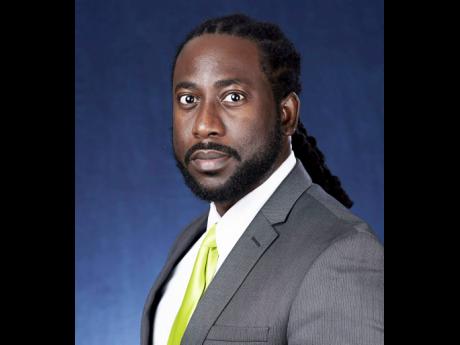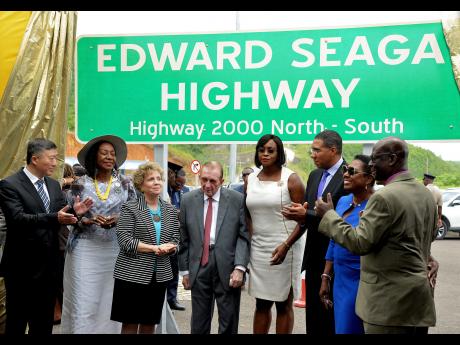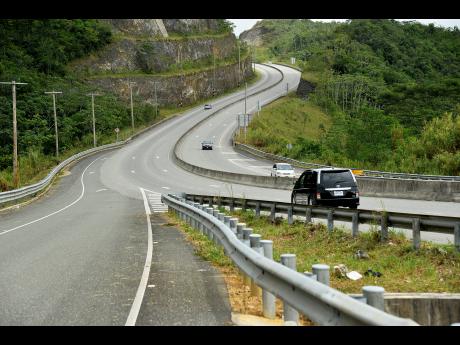Jermaine McCalpin | What's in a name? Getting high off the highway
The recent furore over the naming of a section of the North-South Highway after former Prime Minister Edward Seaga has resulted in the well-known malady of selective remembrance. Petty political supporters on both parts of the partisan zinc fence are shouting over each other in the usual tone-impaired manner. I side neither with the sanctified conscientious objectors who believe the North-South leg should not be named the Edward Seaga Highway nor with those who believe that infrastructural development by a politician bestows naming (birth)rights to a highway that connects the capital city with the north coast.
If you atke a cursory glance of the names of major roads, bridges, highways, boulevards, airports and schools across Jamaica, both parties have used their tenure in office to 'name it and claim it'. These naming ceremonies are more about paying political homage than they are about the reward for nonpareil service; more hype than substance.
The issue of the naming of public spaces/places reeks of partisanship, but we must make the issue of naming and renaming even broader than just about recent partisan political history. It calls for an examination of our colonial past and how many King and Queen streets have been so named and left untouched, not in homage to our African ancestors, but, rather, to the British colonisers. I believe that politicians should not get the opportunity, at their behest, to name places after their comperes, patriots or comrades. These place names are to reflect the collective rather than the offspring of self-serving, opportunistic politicians.
I think the present brush fire with its attendant smoke that has made many high off the highway's naming can only be settled with the establishment of a national commission for the naming of public places and spaces. If we are not careful, Emancipation Park could become Comrade Park, and Independence Park could become National Labour Park.
The establishment of such a commission will require civil society and political support in initiating legislation. However, no political party should have representatives on this commission; it should consist of carefully chosen individuals at the discretion of the governor general.
We have seen that the need for political balance has not worked for the Electoral Commission of Jamaica.
Majoring in the minor
In the end, protesting the naming of a highway for a politician, while principled, is a classic case of majoring in the minor. This storm in an enamel cup is brewing while Jamaica, approaching its mid- to late 50s, has far more critical problems to attend to.
Jamaica's democracy is suffering from many midlife ailments, political arthritis, partisan obesity, and ineptitude manifested as political hypertension. Jamaica needs to make some lifestyle changes if it is to reverse these diseases.
From another perspective, the controversy over the naming of the highway is emblematic of how divisive our political leaders are perceived to be. The problem with the naming of any public space for our politicians is that it enshrines them into perpetuity. In doing so, we are forced, collectively, to remember not only their good deeds, but also their 'sins'.
I, however, remember the example of Jesus Christ, and I paraphrase: "He that is without sin should deface the first sign or drive the old route." Maybe, just maybe, everyone should just get off their high horses and take their cars on the highway because, after all, there are no PNP or JLP roads; they are Jamaican roads.
They must remain that way. No party, or the government it leads, should lay claim to Jamaica or any road, building, highway, or project as 'theirs'. We, the people, own the rights to this country. Our politicians are stewards to this venture. Thankfully, the capital of Jamaica is not Gordon House, Belmont Road, or Old Hope Road.
- Dr Jermaine McCalpin is a political scientist and director of the African and African-American studies programme at New Jersey City University. Email feedback to columns@gleanerjm.com.



